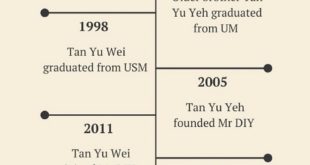
On September 1, 2020, singer Jason Jonathan Lo and his colleague Muhammad Yakub Hussaini pleaded not guilty to a charge of breach of trust after using funds of RM232,500 from Fat Boys Records Sdn Bhd for personal use.
Both men are directors of the company, and were originally entrusted with the money.
They were charged with committing the offence on April 24 and May 14, 2019 according to Section 409 of the Penal Code read together with Section 34 of the Penal Code.
Under that charge, they would have had a maximum jail term of 20 years and whipping as well as a fine if convicted.
Serious stuff, and it’s clear that what was committed is a type of fraud, but what kind exactly?
Well, it’s one that falls under white-collar crimes.
It’s Non-Violent, But A Crime Nonetheless
White-collar crime is defined as a non-violent crime committed (usually by an individual in a company) for financial gain.
Overseas, the FBI defines it as “crimes characterised by deceit, concealment, or violation of trust”.
Some common examples include securities fraud, embezzlement, corporate fraud, and money laundering.
From what I can understand of the existing information from news reports about the case, the specific white-collar crime committed by Jason and Yakub would be considered embezzlement.
This is when a person or entity misappropriates the assets entrusted to them. They have the right to attain the assets lawfully and possess them, but then end up using the assets for unintended purposes.
It is a breach of the fiduciary responsibilities placed upon a person.
Dictionary Time: Fiduciary responsibilities involve finances—managing the assets of another person, or of a group of people, for example. Money managers, financial advisors, bankers, accountants, executors, board members, and corporate officers all have fiduciary responsibility.
Embezzlement: Taking What Isn’t Yours
Funds embezzlement can take place on a small or large scale.
For example, small-scale embezzlement would be a cashier taking a few bucks from the registry for themselves.
Meanwhile, large-scale embezzlement takes place when executives of large companies transfer a significant amount of money into their personal accounts, or use it for personal gain.
Under the umbrella term of “embezzlement”, there are many more specific types, of course.
But what’s the difference between embezzlement and just stealing?
According to Chron, embezzlement is done from the inside, and involves stealing resources that one was hired to handle or protect.
Embezzlement can have serious negative effects on a company that falls victim to it.
One of the consequences is direct net losses, which is a severe problem since the survival and continued growth of a business is tied to how much profit can be generated.
For newer startups, embezzlement could mean immediate death for the business.
Some other consequences would be the:
- Disruption of operations (depending on what technique an embezzler uses),
- Disruption of accounting (leading the company to file incorrect evaluations and be fined for it, or assume that it has enough surplus for large financial decisions that it’ll be unable to actually handle),
- Erosion of trust (between the embezzler and the rest of the company, which can have further ripple effects).
Fraudulent Directors
The Companies Act 2016 (CA) is the main piece of legislation governing the company laws in Malaysia.
It aims to enhance the internal control and strengthen the corporate governance structure where company directors are concerned. If a director breaches their duties, they can be sued.
The new law also observes stricter standards and higher responsibilities for directors, and violations could incur heavy fines and longer imprisonment terms.
As mentioned earlier, Jason and Yakub would have had a maximum jail term of 20 years and whipping as well as a fine if convicted.
For now, the court has allowed the two accused bail of RM30,000 each and set October 2 for mention of the case for the submission of documents.
Until then, the full scope of their punishment remains to be seen, and it is also still unclear what will happen to their positions in Fat Boys Records Sdn Bhd.
Featured Image Credit: TinyPic



